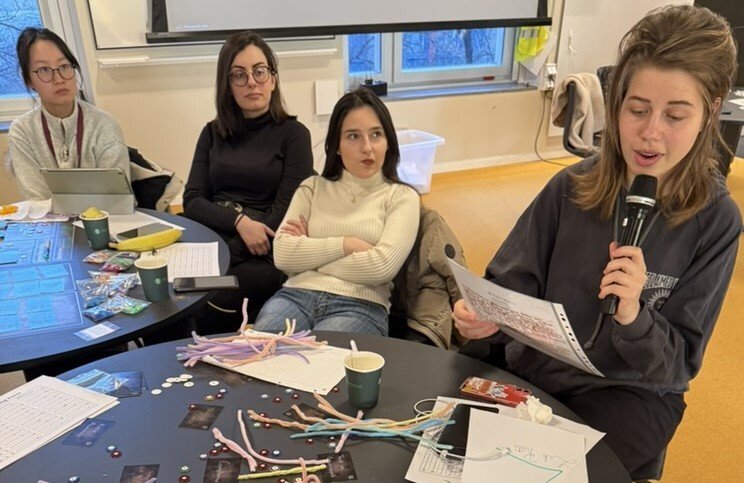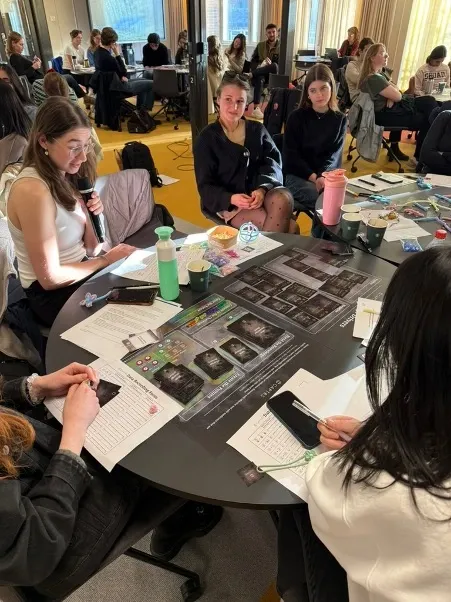Interactive game helps students tackle antibiotic resistance

In a pilot project within the course Biomedical Communication, students have tackled the complex issue of antibiotic resistance (AMR) through gamification. When the AMR Knowledge Space Game was integrated into the curriculum, the response from both teachers and students was overwhelmingly positive. With the success of the pilot, the interactive game may become part of future courses and educational research at Karolinska Institutet (KI).
“The game enables biomedical students to approach antibiotic resistance as a complex societal challenge, rather than merely a molecular issue. Through game-based methods, we aim to foster interdisciplinary dialogue and equip future biomedical professionals with the ability to think systemically about AMR and to develop strategic solutions,” says Giulia Gaudenzi, assistant lecturer at the Department of Global Public Health and project lead for the initiative.
The idea for the AMR Knowledge Space Game was born when Giulia Gaudenzi herself participated in a workshop on games, focused on science diplomacy.
“I was struck by how effective the game-based method was and immediately thought it could be a fantastic tool to stimulate interdisciplinary thinking among KI students,” she says.
Spring 2025, Karolinska Institutet began a collaboration with Captrs to test games as educational tools within the biomedical communication course on the Master's Programme in Biomedicine, taught by Matthew Kirkham, researcher at the Department of Cell and Molecular Biology.

The pilot was supported by a departmental grant and brought together experts from biomedicine, global health, education and serious game design.
Among them was Jennifer Valcke, educational developer at the Unit for Teaching and Learning and researcher at the Department of Learning, Informatics, Management and Ethics, who highlights the pedagogical value of the initiative.
Promoting collaboration and problem-solving
The aim was to offer students in the biomedical communication course a game-based, interactive learning experience to collaborate on problem-solving and promote systems thinking.
Students used a game board and markers to explore the complex factors contributing to antibiotic resistance. Working in groups, they mapped out causal relationships and discussed possible interventions for optimal outcomes.
New perspectives according to evaluation
Using games to approach complex healthcare challenges is an excellent way to integrate sustainable development into education, summarizes Jennifer Valcke.
“It’s also a fantastic opportunity for us as educators to directly observe the role of active participation, interdisciplinarity, and critical thinking in group formation processes.”
One student summarized their experience with the AMR Knowledge Space Game in the course evaluation:
“Brainstorming the various challenges affecting antimicrobial resistance (AMR) really helped us see connections between different systems and factors that I hadn’t considered before.”
Preparing the next generation of healthcare professionals for increasingly complex global health challenges is crucial. KI are now evaluating the potential of using the AMR Knowledge Space Game as a valuable tool in both education and educational research.
